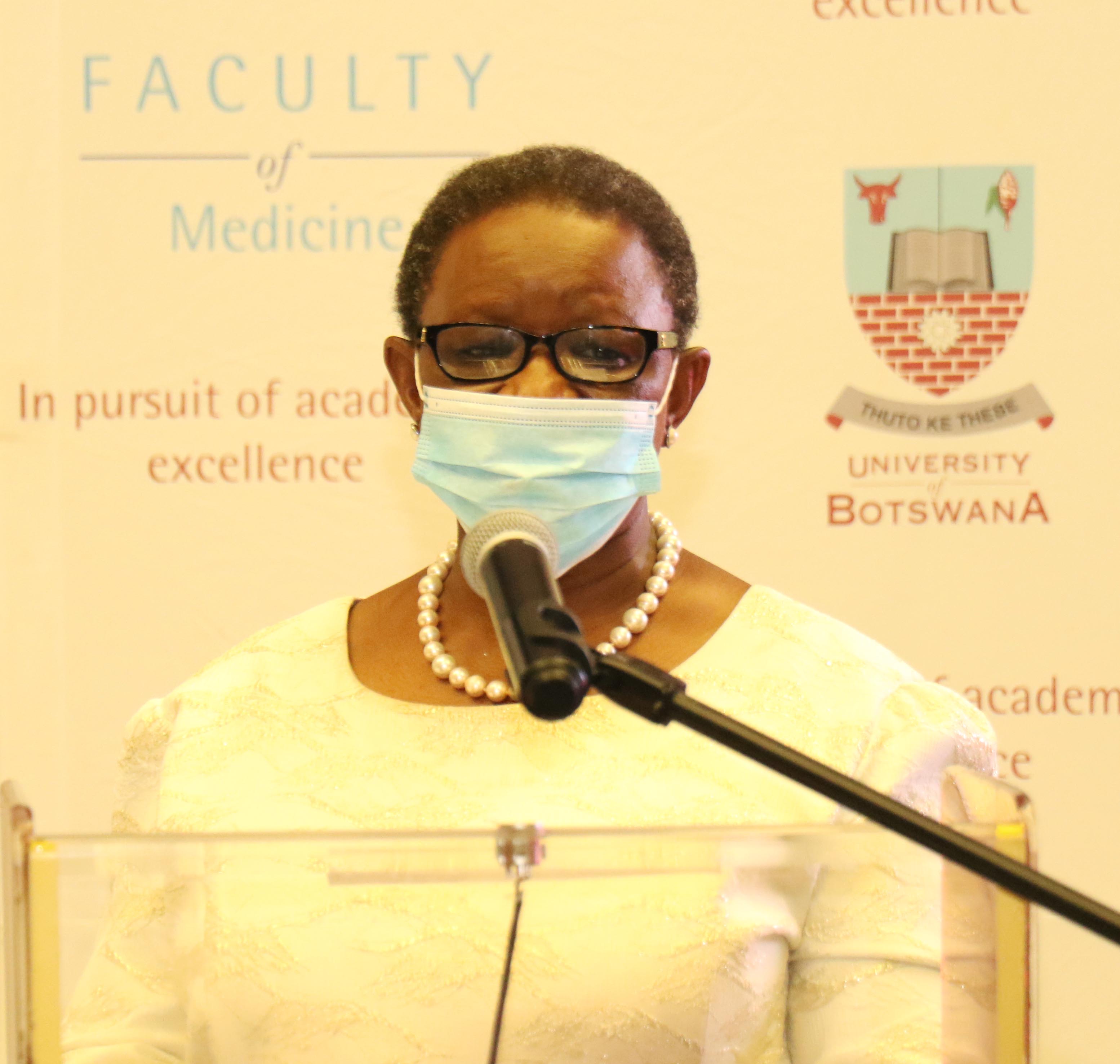UB Instrumental in Botswana's Cervical Cancer Elimination Programme
 The University of Botswana stands proud as a major policy influencer in efforts towards cervical cancer elimination in the country. Notably, the Faculty of Medicine continues to be instrumental in the Ministry of Health and Wellness’ strategy to prevent, treat and eliminate cervical cancer in Botswana.
The University of Botswana stands proud as a major policy influencer in efforts towards cervical cancer elimination in the country. Notably, the Faculty of Medicine continues to be instrumental in the Ministry of Health and Wellness’ strategy to prevent, treat and eliminate cervical cancer in Botswana.
Acting Vice Chancellor, Mrs Motsei Rapelana, said the role by the Faculty of Medicine was in line with the new University of Botswana strategy, which underscores the need to respond to societal challenges through meaningful stakeholder engagement and impactful research.
Mrs Rapelana was speaking that at a University of Botswana webinar held on November 17, 2021 to commemorate the first anniversary of the World Health Organisation (WHO) Global Cervical Cancer Elimination Strategy under the theme; University of Botswana Clinical, Research and Policy Contribution Towards Cervical Cancer Elimination.
Botswana co-sponsored the launch of the global strategy and Mrs Rapelana said it was gratifying that the University of Botswana had been involved in research and provision of services to Batswana to make these global efforts a reality. “We are gratified to say that within our own faculty we have undertaken impactful research which is guiding policies that the government is now implementing in an attempt to eliminate cervical cancer,” said the Acting Vice Chancellor.
She noted that not only was the research helping to guide policies but it was also locally based in that the guidelines the Ministry of Health and Wellness was using to prevent cervical cancer were in the traditions and cultures of Batswana. “Colleagues congratulations for the good work that you have delivered to the government of Botswana,” added Mrs Rapelana, noting that that was because their research was not gathering dust on shelves but bearing fruit and helping to foster change.
Speaking on the evolution of the Botswana cervical cancer prevention programme, Professor Doreen Ramogola-Masire, said as professionals in the Faculty of Medicine, they did not only do research on cervical cancer but provided clinical care in terms of prevention and treatment as well. Professor Ramogola-Masire observed that following the global launch of the first HPV vaccine in 2006, Botswana became the second country in Africa to embark on a national rollout programme in 2015.
She said it was through their research that they were able to provide important information and data that not only led to the introduction of the HVP vaccine in 2015 but also helped to provide the first comprehensive strategy to guide prevention of cervical cancer in the country. Because of the work that has been done through all these years, 90 percent of girls 15 years and over have been vaccinated in the country while 70 percent of women are screened twice with high performance tests. In addition 90 percent of women identified with cervical cancer receive treatment.
Dr Rebecca Luckett, speaking on cervical prevention: research to policy development, said cervical cancer was the leading cause of cancer deaths in Botswana hence there need to work eliminating it after the good work that the country did in curving the impact of HIV/AIDS. Dr Luckett said initially there were no clear guidelines on what to do with positive HPV results but with their research, they came up with a five-year National Cervical Cancer Prevention Programme through they would work on system strengthening, primary and secondary prevention where the University of Botswana would be more involved with its expertise.
The only Gyn-oncologist in the country, Dr Lisa Bazzett-Matabele, said with the scaling up of screening and vaccination, Botswana can eliminate cervical cancer. Dr Bazzett-Matabele is also part of a multi-disciplinary team working at Princess Marina Referral Hospital where they operate the only referral clinic for all cervical cancer referrals in the country.